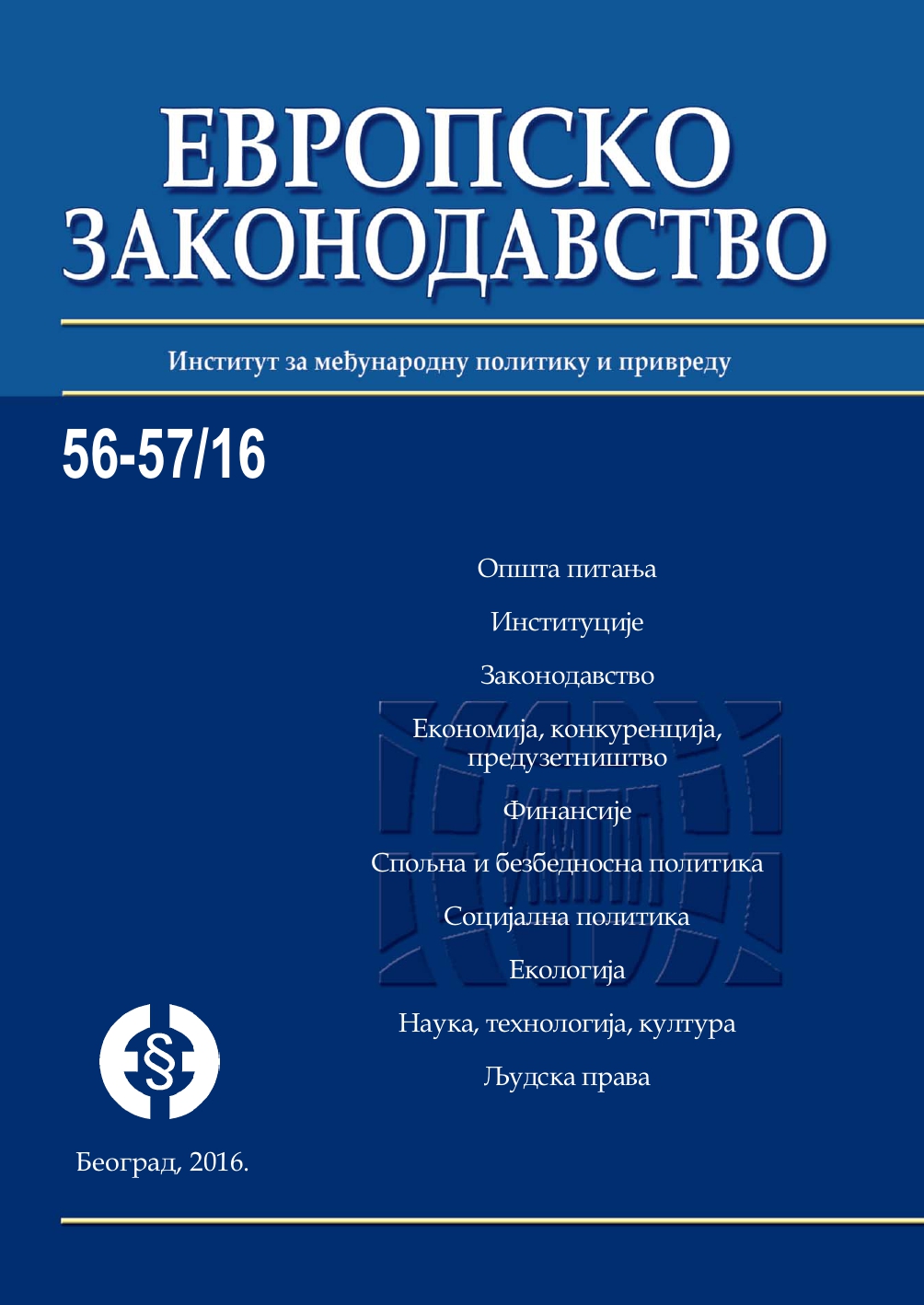Проблем демократског дефицита у политичком систему Европске уније
The problem of democratic deficit in the political system of the European Union
Author(s): Tomo Odalovic, Nebojša JerinićSubject(s): EU-Legislation
Published by: Институт за међународну политику и привреду
Keywords: direct democracy;the EU democracy;Spitzenkandidaten;the principle of subsidiarity;democratic deficit;the European integration process
Summary/Abstract: In modern society, the sovereignty of the people is expressed through elected representatives indirectly and not by direct voting on certain issues. Viewing and understanding democracy in this way can raise questions whether the mechanisms which ensure that decisions come from the national representatives, authentically correspond to the general will of the people. The problem regarding the restriction of democratic structure can also meet other difficulties, as critics suggest, political democracy is useless if it does not join power in other spheres, especially in the field of political economy. The democratic deficit of the European Union is conditioned by many aspects. Firstly, it expresses the dilemma regarding the methods the EU institutions use to express the general will of the people of the Member States, in relation to the motives for the integration. Secondly, the democratic deficit can be seen as a consequence of the comprehensive law, which can be applied in uneven democratic conditions and differently developed democratic institutions of the EU Member States. Thirdly, the democratic deficit is conditioned by many legal and technical issues arising from the nature of the community law, formed in cooperation between different civil and common law institutions and systems. Furthermore, the democratic deficit can be caused by the high degree of the EU bureaucracy and, especially, the role of the European Commission. The concept of direct democracy could reduce the differences that separate the EU institutions and the public perception of the European politics, however, significant changes cannot be achieved without the active participation of well-informed citizens who are willing to take the time to engage in future of the EU policy-making processes. One of the most important goals of the Lisbon Treaty was making the European Union more democratic, effective and transparent. The standards are certainly raised in terms of democratic accountability by strengthening the role of the European Parliament and the national parliaments and by establishing new mechanisms such as citizens’ initiatives, Spitzenkandidaten process, the Principle of subsidiarity and many others. Indeed, a democratic society grounded in the rule of law can provide the essential environment within which the right balance between diversity and unity can be achieved. However, critics may argue whether it is possible to make a distinct separation of jurisdictions, legal certainty and equality before the law in the sui generis organization such as the European Union.
Journal: Европско законодавство
- Issue Year: 2016
- Issue No: 56-57
- Page Range: 43-53
- Page Count: 11
- Language: Serbian

